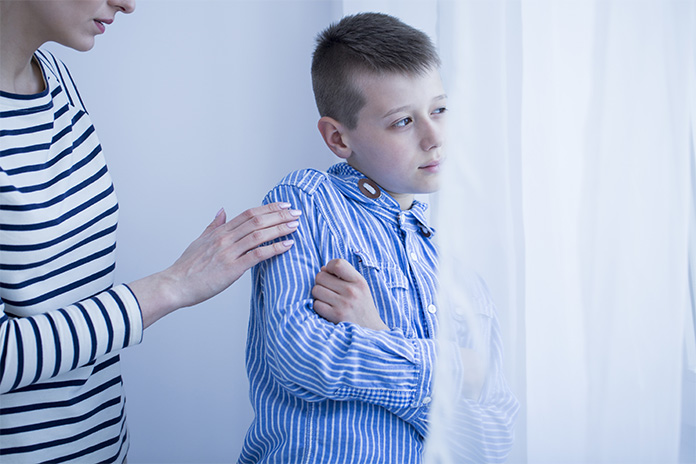The struggle for a special needs child dealing with an Obsessive-compulsive disorder is not only a daily challenge for the child, but also for the parent(s) or guardian. Obsessive-compulsive disorder (OCD) is classified as an anxiety disorder, yet there is a great deal of resistance to the notions of coping skills such as relaxation and meditation. While this stems from the effectiveness of ERP, or Exposure and Response Prevention, and the “tough love” required to enforce it, parents must always bear in mind that each child responds differently. Meditation may be too much to ask, but there is nothing wrong with trying some breathing exercises.

Entire households are affected when a child has OCD. This makes it all the more crucial to strengthen relationships between individuals with OCD and the rest of the family while promoting understanding and cooperation within the household.
Try one or more of the following management techniques to pull off this daunting task:
1. Recognize signals
Recognize signals – OCD symptoms often have early warning signs. Watch for subtle behavior changes. Look for large blocks of unexplained time that your child is spending alone. Especially take notice if they begin to do things again and again. Any significant changes in the child’s habits, such as eating and sleeping, are also possible signals.
2. Modify expectations
Modify expectations – Times of change or transition are tough for children with OCD. Modify your expectations during this time. In other words, be flexible. There is no need for conflict, which will only exacerbate the symptoms.
3. Avoid constant comparisons
Avoid constant comparisons – You have to look at the bigger picture to note progress in the development of a child with OCD. He or she might slip up here and there, but it does not mean you are back to square one. These children tend to be very tough on themselves. The last thing you need to do is trigger a bout of self-destructive thinking. Instead, take note of minor improvements. This is where positive reinforcement comes in.
4. Set limits, but be supportive
Set limits, but be supportive – You should always do your best to avoid participating in compulsions or rituals. However, you will also have to try to be supportive. It is a tightrope. That is why you must set limits. Make agreements with your child, in advance, when it comes to assisting with compulsions. Restrict how much time is spent discussing OCD, as well as how much reassurance is given. And remember, be mindful of how much the compulsions infringe upon others’ lives. Don’t forget to be sensitive to mood!
5. Explore medication options if appropriate
Explore medication options if appropriate – Do your research of the various medications for children and young adults suffering from OCD. While medication may work for some, for others it may not be the best choice. Consult with your child’s doctor and psychiatrist to determine the best course of action. Should your child be prescribed medication, follow the instructions as they have been prescribed, and tell your doctor if you notice any serious side effects or have any other concerns. Usually, the dose is started very low and titrated up over a period of time.
6. If medication is an option, consider genetic testing
If medication is an option, consider genetic testing – while a new approach, the results have been promising. Genetic testing can determine what medications may work better based upon the genetic makeup of your child and how their body can best respond to certain medications that may be considered for OCD.
7. Preserve private time
Preserve private time – This one gets lost in the shuffle. Children with OCD should be given a chance to prove they can be left alone and take care of themselves. You need that time too!
8. Talk about something else
Talk about something else – By the time you are done addressing the anxiety and reinforcing support for them, you and your child need to focus on other topics that can prove constructive. Take a break from continually focusing on the OCD. It can help your child to deviate to topics and activities that can change their focus away from the anxiety and stress OCD can put on your child and you.
Alpha School an private special education school in New Jersey
Our Mission at The Alpha School is to help all of our special needs students with the learning, social, language, and behavioral support they deserve. Our highly skilled staff are committed daily to helping each student to becoming the best they can while providing a safe and nurturing educational environment.
We would be more than happy to discuss your child’s specific needs and challenges, so please call us at 732.370.1150, or request a tour of Alpha School of Jackson, NJ located just minutes off of Route 9 and Route 195 in Ocean County.
— Monica DeTuro, Principal-Alpha School, Jackson, NJ